detail profile ant c3 b3nio lopes ribeiro
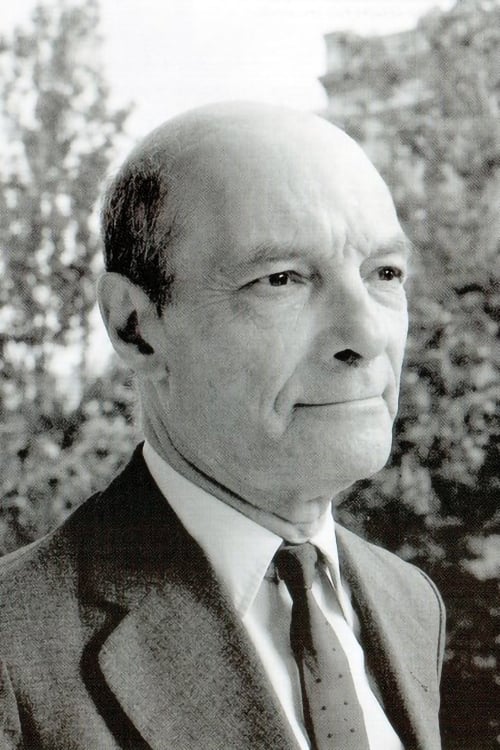
Riwayat Hidup
Director, journalist, and producer, António Lopes Ribeiro (1908-1995) was a central name in the history of Portuguese cinema in the first half of the 20th century.
Movie critic since the late 1920s, he supported the European cinematographic avant-gardes and the aesthetical and technical renewal of Portuguese cinema.
He directed his first film, Bailando ao sol, in 1928 and took part in the shooting of J.
Leitão de Barros film’s Nazaré, praia de pescadores (1929), Lisboa, Crónica Anedótica and Maria do Mar (1930).
Shortly before that, he undertook a long journey to the great movie studios of Paris, Berlin and Moscow, where he became up to speed with the most recent techniques and tendencies, and where he also met Clair, Renoir, Lang, Pabst, Eisenstein and Vertov.
His first sound film was Gado Bravo (1934), made with several Jewish film actors and technicians that had just escaped from Hitler’s Germany.
Ribeiro’s first big propaganda film for the New State was A Revolução de Maio (The May Revolution, 1937), whose script he wrote with António Ferro, the founder and director of the Secretariado da Propaganda Nacional (National Propaganda Office/SPN).
The following year, he accompanied the head of the state, President Óscar Carmona, in a trip to the Portuguese colonies in Africa, shooting topical footage that would be used in several documentaries, as well as in his second propaganda feature film, Feitiço do Império (1940).
Also in 1938, Ribeiro began producing for SPN the New State’s first newsreel, Jornal Português, which would last until 1951.
With his production and distribution company Sociedade Portuguesa de Actualidades Cinematográficas (SPAC), he produced and directed many propaganda documentaries commissioned by the New State, thus earning the reputation of the regime’s official filmmaker and reinforcing his influence in the State-sponsored Sindicato Nacional dos Profissionais de Cinema (National Union of Cinema Professionals).
In 1941, he founded Produções António Lopes Ribeiro, a production company that released famous comedies such as O Pai Tirano (1941), O Pátio das Cantigas (1942, directed by his brother, Francisco Ribeiro), or A Vizinha do Lado (1945); Manoel de Oliveira’s first feature film, Aniki-Bóbó (1942); or historical dramas such as Amor de Perdição (1943), Frei Luis de Sousa (1950) and O Primo Basílio (1959).
Until 1974, Ribeiro produced or directed dozens of propaganda documentaries and newsreels.
Between 1957 and 1974 he was also the author and host of a very popular TV show about the history of cinema titled “O Museu do Cinema” (“The Cinema Museum”).
Info Pribadi
Peran Yang Di Mainkan António Lopes Ribeiro
 This remake of the 1940 film with...
This remake of the 1940 film with...The Tyrant Father 2022
This remake of the 1940 film with the same name tells the story of a theatre company, its men and women in love, mistakes and misunderstandings. Chico loves Tatão, who is courted by Artur. Graça loves Chico, but doesn't know he loves Tatão. Santana writes a play for the Grandelinhas that will serve as a guide to Chico passion and convince Tatão that he is a rich count. The play is then staged and they all end up in prison.
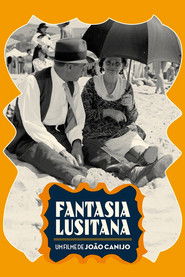 Images and sounds expose the duality...
Images and sounds expose the duality...Lusitanian Illusion 2010
Images and sounds expose the duality of Portugal during the days of WW2: a peaceful, god-loving, rural country, providing an escape route for over one hundred thousand European refugees to the Americas; and a political and cultural elite that disguised their Nazi inclinations just enough to play its neutral role in international politics.
 The tragedy of a woman who...
The tragedy of a woman who...Frei Luís de Sousa 1950
The tragedy of a woman who - after seven years of vain searches - gave up hope of finding her husband, a knight lost in battle in Marroc with Sebastião, king of Portugal. She marries, has a daughter by her second husband, and endures the silent reproach of an aid, Telmo Pais, the only who kept his hope that his master shall return, as well as the king... One day, a mysterious pilgrim arrives at the mansion.
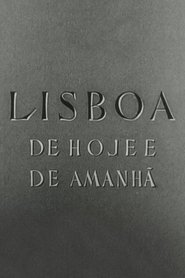 Recent population growth in the capital...
Recent population growth in the capital...Lisboa de Hoje e de Amanhã 1948
Recent population growth in the capital leads to an ambitious development plan, involving public and private initiative as documented here, pinpointing over 60 locations (streets, roads, parks, schools) being modernized or built anew. The narrative and soundtrack are grandiloquent, in the propaganda style required by the Producer (the Municipal Council of Lisbon, then directly dependent of the national government), but the images and data are now of historical relevance.
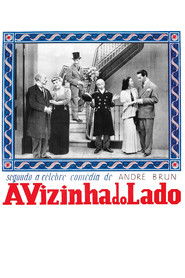 The story of how the conflicting...
The story of how the conflicting...The Girl Next Door 1945
The story of how the conflicting relationship of Eduardo and vaudeville actress Isabel is affected by the passion he feels for their neighbor, Mariana, a young overprotected, and the unexpected visit of his uncle Plácido, a moral teacher.
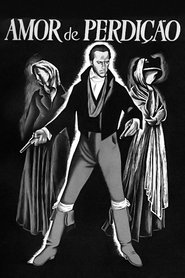 The fatalism caught up and the...
The fatalism caught up and the...Doomed Love 1943
The fatalism caught up and the amorous tragedy between Teresa de Albuquerque and Simão Botelho, who survives the intolerant litigation of her noble families.
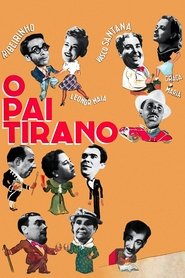 While rehearsing the annual play a...
While rehearsing the annual play a...The Tyrannical Father 1941
While rehearsing the annual play, a clerk tries to regain the attention of his beloved, in a comedy of equivoques.
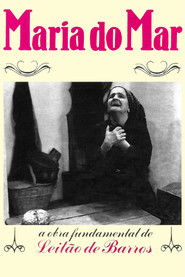 Falacha is the captain of a...
Falacha is the captain of a...Maria of the Sea 1930
Falacha is the captain of a fishing boat, who loses his men in a shipwreck. Among them was the husband of Aurélia, who holds Falacha responsible for the tragedy. Maria, Falacha's daughter, falls in love with Manuel, Aurélia's son, a situation that their mothers refuse to accept.
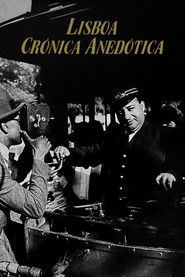 Caleidoscope of documentarylike scenes and reenacted...
Caleidoscope of documentarylike scenes and reenacted...Lisbon, Anecdotal Chronicle 1930
Caleidoscope of documentary-like scenes and re-enacted episodes of a day in the life of a large port town – Lisbon, from the old district around Saint George's Castle down to the docks and the 'Sagres' on the Tagus river, to the new commercial districts.
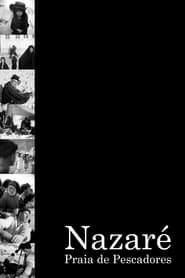 The first Portuguese documentary A remarkable...
The first Portuguese documentary A remarkable...Nazaré, Praia de Pescadores 1929
The first Portuguese documentary. A remarkable look at the lives of the working people of Nazaré, a fishing town in Western Portugal.
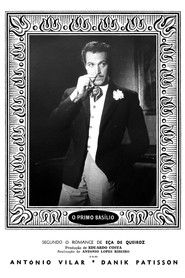 Jorge a successful engineer and employee...
Jorge a successful engineer and employee...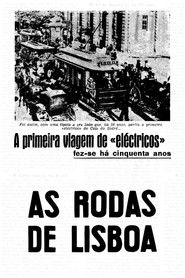
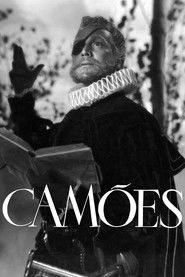 The adventurous life of Portugals epic...
The adventurous life of Portugals epic...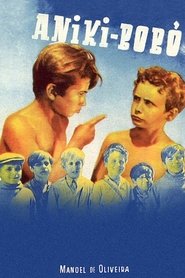 Two schoolboys Carlitos and Eduardo fight...
Two schoolboys Carlitos and Eduardo fight... A portrait of the relations between...
A portrait of the relations between...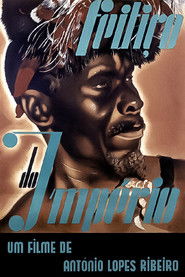 Lus immigrated to the USA and...
Lus immigrated to the USA and...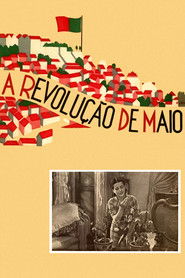 The most wellknown fascist propaganda film...
The most wellknown fascist propaganda film...